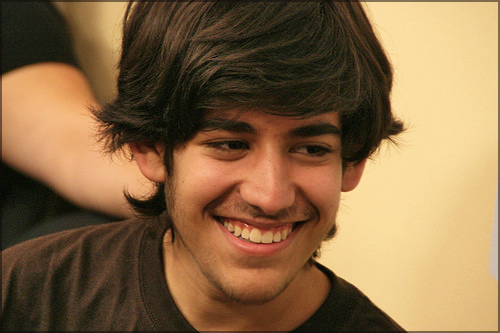How you want the world to see you no longer fits on your resume or comes from a few endorsements.
The words you use to describe yourself on a piece of paper are still useful—particularly when you give those words three dimensionality during face-to-face time. And yes, personal references still matter, because it says there are people out there who believe in you enough to step to the fore and say nice things. But more and more, who you are is revealed by the web of your connections: by what you say, by who responds and shares your conversation, and by how you pick up that thread the next time around.
The boundaries around you have changed. When it comes to introducing yourself effectively, your reach is also who you are.
Part of it is your ability to engage and influence others. But while your Klout or Kred scores can speak to your success as a marketer or thought leader, that is really all they say.
What is most significant about the web of exchange around you isn’t your impact on others, but what all of these conversations reveal about you. Your tone and content speak volumes about who you are to everyone who’s paying attention.
Not so long ago, literal word of mouth accounted almost entirely for your reputation. It was mostly impressions and feelings from one-on-one conversations that were leveraged into a frame of positive judgments around you–as long as the right people started blowing your horn. It was also a tightly managed process, because the older guy usually trumpeted the younger guy who was just like him. Women, ethnic and racial minorities all got their turns feeling the exclusionary aspects of this. Individuals who never fit the mold did too.
If the past seemed clubby, the present is much less so. Making the name that you want for yourself has a far more open and public dimension today. How public?
Well, a network provider just announced that it is accepting applications for a six-figure position via Twitter. The ad doesn’t call on you to make a 140-character argument for why you should be hired over somebody else. And it certainly doesn’t involve attaching your resume to your tweet, because nobody at the other end is interested. As the company’s chief marketing officer told USA Today:
The Web is your résumé. Social networks are your mass references.
While this well-paying job does involve managing the company’s network communications, there is something far more consequential going on here.
Assessing who you are and what you’ll bring to a job by “researching you on-line” is no longer about finding that errant picture of you after too much beer on Facebook. (Those pictures are becoming a thing of the past anyway, as people use Snapchat to forward images that automatically disappear shortly after they’re sent.) No, this is more about the conclusions that can be drawn from the mosaic of information that you’re generating and that swirls around you in the ether like so many “mass references.”
What will the onlookers discover about you when they start looking? They’ll see conversations you’ve had with friends and comments you’ve left for strangers. They’ll note how you said it in a blog or restaurant review. They’ll get a sense of your sarcasm, your curiosity or your politics. Maybe they’ll learn about new talents or unexpected commitments. Most of all, they’ll find what you’ve left for them to find. Check out this recent infographic which lays out several of the ways you can use your on-line platform to tell the world what you want it to know about you.
The first impressions that we make today come from several directions at once. Your digital footprints tell the world a lot about where you’re been, where you’re going, and who you are. It’s useful to think about that whenever you put on your shoes.




